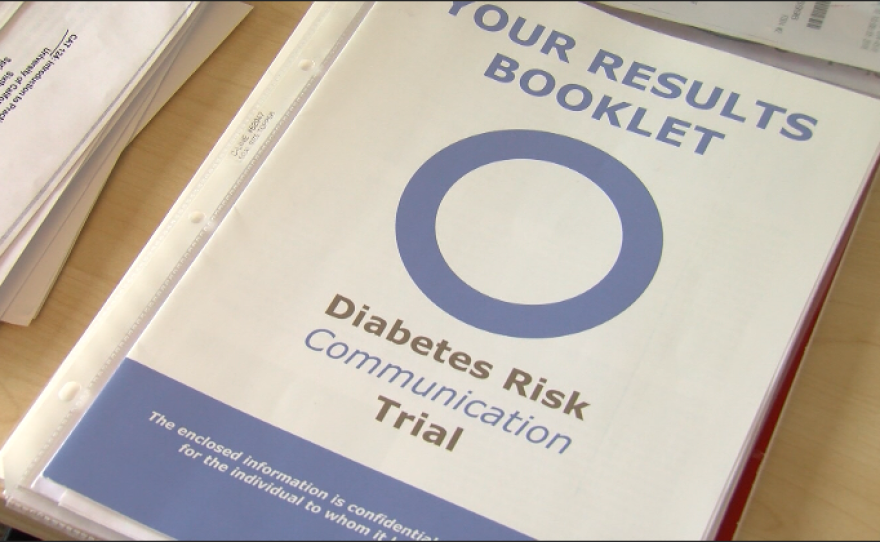If you knew your genetic risk of developing a disease, would you adopt healthier habits to keep that disease at bay? If you're anything like the participants of a recently published study, you probably wouldn't.
Job Godino, now an assistant professor at UC San Diego, led a research team at the University of Cambridge for a study published last week in PLOS Medicine. The researchers wanted to find out if giving people information about their genetic predisposition to developing type two diabetes would change their exercise habits, their diet or how they thought about their risk.
"We were fundamentally interested in understanding whether or not genetic risk information is more motivating or empowering than risk information you might receive at your physician's office," Godino told KPBS. "And what we found is that it really wasn't."
Godino and his colleagues took 569 healthy, middle-aged British adults and split them into three groups. Some received genetic testing results that estimated their personal risk of developing diabetes. Others received risk estimates based on their weight, age and other factors commonly taken into account during a typical doctor's visit. The third group received only general information about diabetes risk.

Eight weeks after providing this information to each group, the researchers used activity trackers and heart rate monitors to collect data on how much people were exercising. They also asked people about what kinds of food they were eating. The researchers found that people who learned about their genetic risk did not end up exercising more or eating better than those who didn't.
"When you have a habitualized behavior like physical activity or diet, it's clear that information alone probably isn't sufficient to break that habit," Godino said.
Some direct-to-consumer genetic testing companies have argued that personal genetic information will give people more control over their health. But Godino said this study, along with other research, shows that gene testing alone may not be enough to get people to change their lifestyle.
However, gene testing did not appear to have any negative impact on study participants. Godino notes that people in the gene testing group did not become more anxious about their diabetes risk. Nor did they start exercising less than people in the other groups.
"It's sad that it wasn't as motivating or as empowering as direct-to-consumer genetic testing companies would have us believe," Godino said. But, he points out, people in the gene testing group did end up with a more accurate perception of their own diabetes risk.







